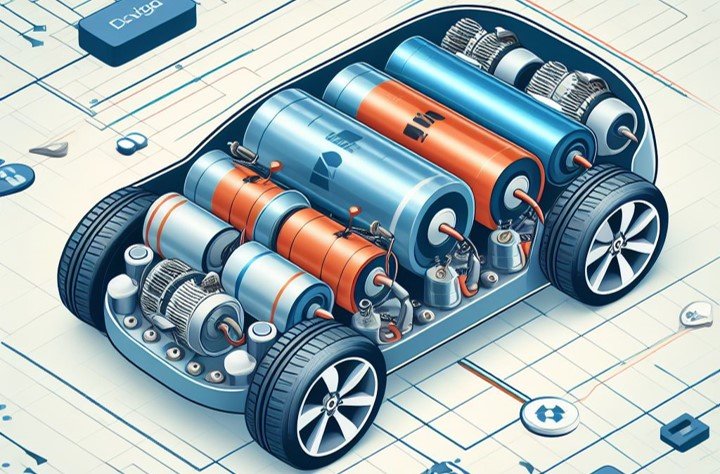Introduction
The internal combustion engine (IC engine) has been the backbone of transportation and power generation for over a century. However, with increasing concerns about environmental sustainability and the rise of electric vehicles, the future of IC engines is a topic of great interest. In this article, we will explore the evolution of IC engines, the current status of innovation, and what the future holds for this technology.
Evolution of IC Engines
The development of IC engines has been marked by continuous improvements in efficiency, performance, and emissions control. From the early days of simple single-cylinder engines to the advanced multi-cylinder engines of today, several key innovations have shaped the evolution of IC engines:
- Combustion Chamber Design: The shape and design of the combustion chamber have been optimized to improve fuel-air mixing, combustion efficiency, and power output. This has led to the development of technologies such as hemispherical combustion chambers and direct fuel injection.
- Turbocharging: The introduction of turbochargers has significantly increased engine power and efficiency by using exhaust gases to drive a turbine that compresses the intake air. This allows for more air-fuel mixture to be burned, resulting in improved performance.
- Variable Valve Timing: By varying the timing of valve opening and closing, engines can optimize fuel efficiency and power output across different operating conditions. This technology has become increasingly sophisticated, with the ability to adjust valve lift as well.
- Hybridization: The integration of electric motors and batteries with IC engines has given rise to hybrid vehicles. These vehicles can use the electric motor for low-speed driving, reducing fuel consumption and emissions. Hybridization has also enabled regenerative braking, where energy is recovered and stored during deceleration.
Current Status of Innovation
Despite the growing popularity of electric vehicles, significant efforts are being made to improve IC engine technology. Manufacturers are investing in research and development to meet stringent emission regulations and improve fuel efficiency. Some notable innovations in IC engines include:
- Advanced Fuel Injection: Direct fuel injection systems are becoming more prevalent, allowing for better control of fuel delivery and combustion. This results in improved efficiency, reduced emissions, and increased power.
- Lightweight Materials: The use of lightweight materials such as aluminum and carbon fiber composites helps reduce the overall weight of the engine, resulting in improved fuel efficiency without compromising performance.
- Start-Stop Technology: Many modern vehicles are equipped with start-stop systems that automatically shut off the engine when the vehicle is stationary, such as at traffic lights. This technology reduces fuel consumption and emissions during idle periods.
The Future of IC Engines
While electric vehicles are gaining traction, IC engines are expected to remain a dominant technology in the near future. The following trends and developments are shaping the future of IC engines:
- Improved Efficiency: Engine manufacturers are focusing on further improving fuel efficiency through advancements in combustion technology, materials, and control systems. This includes the development of lean-burn engines, which operate with a higher air-to-fuel ratio for improved efficiency.
- Alternative Fuels: The use of alternative fuels such as biofuels, natural gas, and hydrogen is being explored to reduce the carbon footprint of IC engines. These fuels offer the potential for lower emissions and increased sustainability.
- Electrification: Hybridization and mild-hybrid systems will continue to play a significant role in the future of IC engines. By combining the benefits of electric motors with IC engines, these systems offer improved efficiency and reduced emissions.
Market Outlook
Despite the rise of electric vehicles, the global market for IC engines remains strong. According to a report by Market Research Future, the IC engine market is projected to reach a value of $47.2 billion by 2025, with a compound annual growth rate of 5.87% from 2019 to 2025. This growth can be attributed to the increasing demand for commercial vehicles, especially in emerging economies.
Furthermore, the report highlights the importance of ongoing innovation and development in IC engine technology to meet stringent emission regulations and improve efficiency. The market is witnessing collaborations and partnerships between engine manufacturers and technology companies to drive innovation and stay competitive.
Conclusion
While the future of IC engines may face challenges from electric vehicles, continuous innovation and improvements in efficiency, emissions control, and alternative fuels will ensure their relevance for years to come. IC engines will continue to power a wide range of vehicles and equipment, providing reliable and efficient transportation and power generation solutions.















Good Article